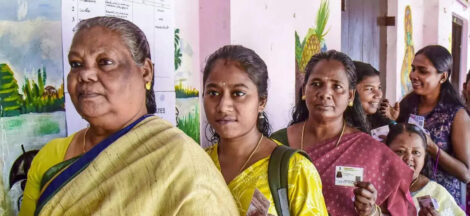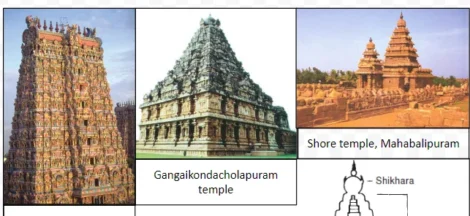By Amulya Ganguli
For a politician like Mamata Banerjee, who is aspiring to move from state politics to play a national role and even become the prime minister, the recent past has been eminently forgettable.
The snub which she has received from her former anti-BJP Federal Front partner, Telangana chief minister, K Chandrashekhar Rao, because of his growing proximity to the saffron outfit, shows that she is yet to understand the political cross-currents outside her own state.
Rao’s unceremonious quitting of the proposed front is the second time that the West Bengal chief minister’s foray into national politics has come a cropper. The first time was when her attempt to team up with Mulayam Singh Yadav to stop Pranab Mukherjee from becoming the President led nowhere because of the Samajwadi Party leader’s disinterest in her project aimed at discrediting her old adversary in the West Bengal Congress.
The episode showed that she had no clue about what motivated politicians in the Hindi belt. The same ignorance was revealed when her plan to hold a joint public meeting with Anna Hazare in Delhi proved to be an embarrassing flop show.
Now that Rao has poured cold water on Mamata Banerjee’s dream of constituting an anti-BJP combine, she has to start all over again to assemble the opposition parties at the national level on a common platform.
But the task will not be easy considering the shambolic conduct of the panchayat polls in West Bengal, which were marked by the brazen violence and intimidation of the ruling Trinamool Congress cadres, which prevented a substantial number of opposition candidates from filing their nominations.
Although the Supreme Court has expressed “shock” over thousands of seats remaining uncontested presumably because the opposition candidates were scared away by the goons associated with the ruling party while the police looked the other way, it has refused to intervene. Nevertheless, the rest of the country has been appalled by the palpable collapse of the rule of law in the state.
Even if the Trinamool Congress can be said to have “won” the panchayat polls, the exercise hasn’t enhanced Mamata Banerjee’s reputation as an able and impartial chief minister. It has to be remembered that Narendra Modi staked his claim to be prime minister by presenting Gujarat as a “developed” state where there had been no riots since 2002.
Notwithstanding the social tranquility in West Bengal, it is the calm of FatehpurSikri, Mughul emperor Akbar’s abandoned town, which is how Nobel laureate Amartya Sen described the deserted Kolkata airport of Rajiv Gandhi’s “dying city” with its stagnant economy .
In addition to Mamata Banerjee’s failure to attract investments because of her anti-capitalist image fostered by her agitation against the Tata’s Nano factory when she was in the opposition, the violence indulged in by the Trinamool cadres and their extortions from house owners have led critics to rephrase her “ma, mati, manush” slogan as “ma, mati, mafia”.
In the wake of Rao’s scuttling of the federal front idea – it was something of a non-starter any way because the Telangana chief minister is hardly a front-ranking national leader – it will be increasingly difficult for Mamata Banerjee to make a success of another similar project.
In any event, the prospect of opposition unity does not seem all that bright at the moment. The non-BJP parties are apparently waiting for the conclusion of the assembly elections towards the end of the year in Rajasthan, Madhya Pradesh, Chhattisgarh, Telangana and Mizoram before making their next move.
There is also uncertainty among them about the stability of their present inchoate unity, especially after Rao’s departure and doubts about Odisha chief minister Naveen Patnaik’s intentions. Even the reliability of BSP’s Mayawati is being occasionally questioned.
Mamata Banerjee, however, remains a part of the stable core of an opposition combine at the national level, which comprises at the moment the Congress, the RJD, the Samajwadi Party (though perhaps not Mulayam Singh Yadav and certainly not Shivpal Singh Yadav who has already walked out), the NCP, the Janata Dal (Secular) – if Karnataka Congress leader Siddaramaiah does not bother chief minister H.D. Kumaraswamy too much – the Left parties, Telugu Desam and the National Conference.
However, the vulnerability of some of these parties lies in the allurements which the BJP can provide via its substantial war chest and its threatened use of the CBI and other government agencies against a few leaders. The comparison which U.P. chief minister Yogi Adityanath has made between Akhilesh Yadav and Aurangzeb by saying how the latter had imprisoned his father, Shahjehan, is an unsubtle attempt to create a rift between Akhilesh and Mulayam Singh.
Mamata Banerjee’s plus point lay in her combativeness which matched the BJP’s aggression. But as her outreach to Rao and earlier Mulayam Singh showed, she is not discerning enough in the matter of choosing allies. The conduct of her party men in West Bengal is another negative feature. Whoever finally emerges as the leader of a new federal front, it is unlikely to be the West Bengal chief minister. (IPA Service)
The post Not The Best Of Times For Mamata Beyond Bengal appeared first on Newspack by India Press Agency.



